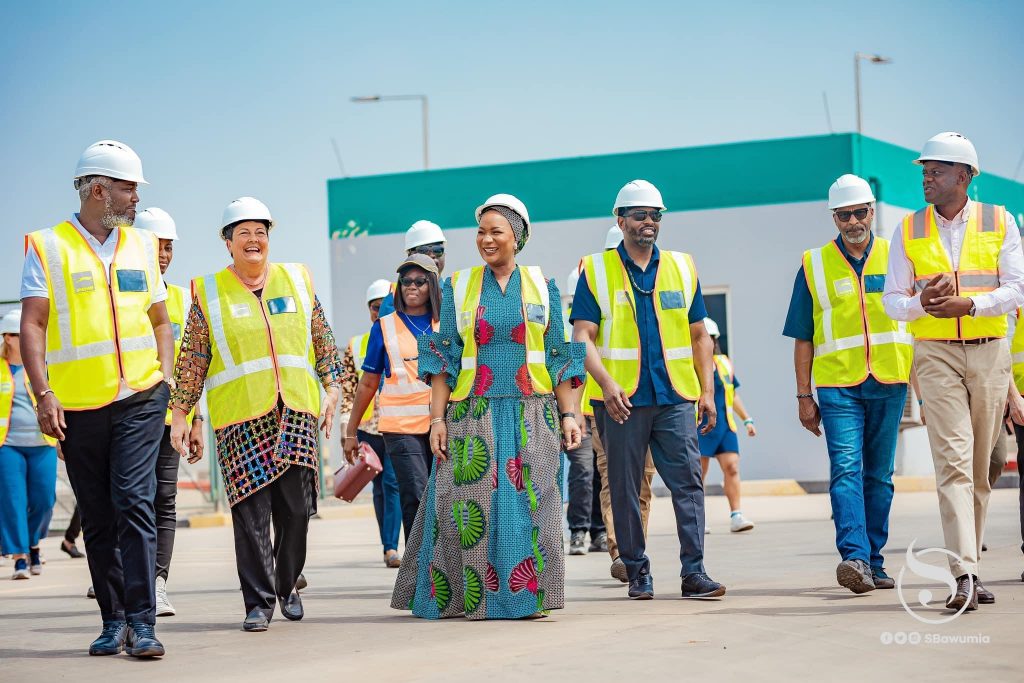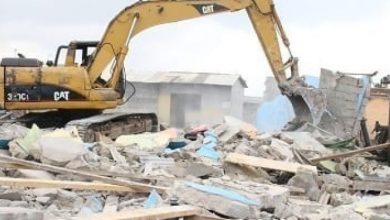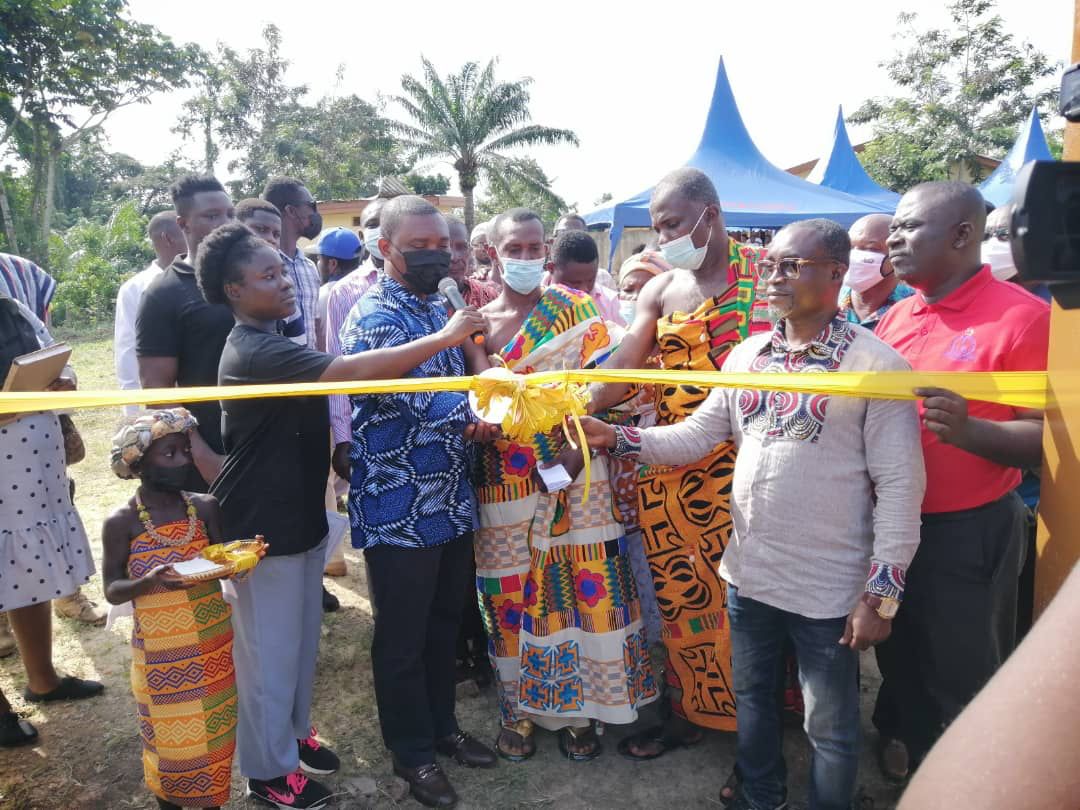Samira Bawumia advocates clean cooking for combating air pollution

Hajia Mrs. Samira Bawumia, the Second Lady of Ghana and Global Ambassador for the United Nations’ Clean Cooking Alliance, has pledged to amplify advocacy efforts for reducing the reliance on Liquefied Petroleum Gas (LPG) to enhance its adoption in Ghana.
This commitment was expressed during her visit to the Jamestown community in Accra, where she toured various areas alongside Michael Regan, the Administrator of the United States Environmental Protection Agency (US-EPA). The objective of the visit was to gain firsthand insights into prevalent cooking methods and fuel sources used by women in the community and to address concerns related to these practices.
Mrs. Bawumia emphasized the importance of promoting cleaner, accessible, modern, and affordable energy sources for cooking, with a focus on LPG. The visit not only underscored the strong Ghana-United States relations but also showcased a shared dedication to advancing clean cooking practices for improved public health and sustainable living.
Jamestown, known for its cultural and historical significance, provided an ideal backdrop for the initiative, reflecting the typical challenges faced by Ghanaian communities in adopting sustainable and clean cooking methods. The area grapples with issues arising from traditional cooking approaches reliant on less sustainable and unclean fuel sources such as charcoal, firewood, and tires.
During the visit, several households, fish smoking facilities, a kenkey house, and a banku joint were inspected to observe the methods and fuels used in food preservation and preparation.
Mrs. Bawumia underscored the challenges faced by women in ensuring food security and emphasized the commitment to assisting them in transitioning from traditional, unclean cooking methods to cleaner energy sources. She highlighted the adverse health effects associated with unclean cooking, including non-communicable diseases, respiratory illnesses, and blindness.
The Second Lady stressed the need for a balance between traditional cooking methods embedded in the culture and the imperative for environmentally sustainable and healthy practices. Nearly two-thirds (64%) of household air pollution is attributed to unclean cooking methods, leading to severe health consequences.
To address these challenges, the Ghanaian government, under Mrs. Bawumia’s advocacy and as a champion of the World Health Organisation’s Health and Energy Platform for Action (HEPA), is actively working to increase access to cleaner fuels. Initiatives such as the Cylinder Recirculation Model (CRM) project aim to overcome obstacles related to the cost of LPG, making it more accessible to the entire population.
The delegation, which included Dr. Henry Kokofu, Executive Director of the Environmental Protection Agency of Ghana, Ambassador Virginia Palmer, the United States Ambassador to Ghana, and Mr. Derrick Johnson, CEO of the US National Association for the Advancement of Coloured People (NAACP), also engaged in a town hall discussion on alternative cooking methods and the potential for cleaner, more sustainable, and environmentally friendly fuel sources for the local population.
Background
During the United Nations Conference of Parties (COP28) held in Dubai in December 2023, Mrs. Bawumia and Ambassador Regan participated in a fireside conversation facilitated by the Clean Cooking Alliance.
The discussion centered on the repercussions of unclean cooking on individuals, livelihoods, and the environment. Additionally, it delved into the crucial role of national governments in expediting the adoption of clean cooking solutions through purposeful programs and policies.
In light of these discussions, Ambassador Regan and his team are currently in Ghana to personally observe the prevailing traditional cooking practices in the country and explore avenues for their enhancement.




